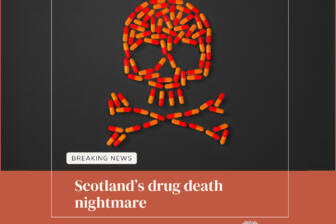Methadone Withdrawal and Detox
More than 70% of the drug-related deaths in the world are related to the use of opioids.
Methadone has been found to be useful for pain relief and opioid detox when used properly as prescribed by a physician. However, this drug poses the same risks as other opioids when it comes to addiction and potential health risks.
In 2020, almost half of the drug deaths in Scotland were due to the use of methadone.
Are you wondering what you need to know about methadone withdrawal and detox? Let’s take a look at what you need to know.
What Is Methadone?
Methadone is a narcotic that is used as a part of drug addiction detox and maintenance programs. Recently, this synthetic opioid is increasingly prescribed as a pain reliever.
Methadone is a highly controlled substance. When used in a prescribed manner, it is only dispensed from facilities that meet extremely high standards.
This substance is used to help with the treatment of opioid dependence in part because of its long duration of action in the body. It can help to stave off opiate withdrawal symptoms for a long time when used as prescribed.
Methadone is available in liquid, powder, and tablet form. It cannot be legally obtained without a prescription. It is absolutely essential to take this medication exactly as prescribed, otherwise, it could lead to addiction.
It’s important to understand that this drug can be incredibly dangerous when it is abused recreationally.
Methadone works by depressing the central nervous system. Central nervous system depressants are a categorization of drugs that are used to treat many different disorders. At the same time, some of these drugs are commonly abused and highly addictive.
Central nervous system depressants by reducing the amount of activity in the central nervous system. They also lower the awareness levels in the brain.
Symptoms of Methadone Withdrawal
Compared to other opioids, methadone is relatively long-acting. This means that the withdrawal symptoms might not occur for as long as 30 hours after the last time it was used. For other opioids such as heroin, the withdrawal symptoms typically show up in about 12 hours.
Some of the effects of methadone withdrawal one might experience include:
- Anxiety
- Trouble sleeping
- Sweating
- Agitation and irritability
- Increased pain and aches
- Frequent yawning
- Runny nose and watery eyes
- Goosebumps
- Diarrhoea
- Stomach cramps
- Vomiting
- Nausea
Can methadone withdrawal cause death?
Methadone withdrawal can certainly pose a number of risks when it is not done in a clinical setting. The consequences of ending or lowering the dose are not typically life-threatening. However, it can create psychological and medical complications that can be incredibly dangerous to the health of the individual if they aren’t managed properly.
Duration of Withdrawal
In general, the symptoms of methadone detox will start to appear somewhere between 24 and 36 hours after the last dose of the drug. This process should be supervised by a medical professional.
How long does it take to get off methadone?
How long withdrawal lasts depends on the individual, but it could last anywhere between 2 to 3 weeks or up to 6 months.
Methadone Withdrawal Timeline
If within the first thirty hours after taking the last dose you experience any of the following symptoms, you might be experiencing the effects of withdrawal. These include:
- Sweating
- Anxiety
- Tiredness
- Watery eyes
- Yawning
- Runny nose
- Restlessness
- Trouble sleeping
The withdrawal symptoms can seem similar to having the flu at first. However, it is distinguishable from the flu because of the severity of the symptoms that occur for several days. After about three days, certain symptoms might reach their peak, including:
- Goosebumps
- Vomiting
- Diarrhoea
- Drug cravings
- Depression
- Muscle aches and pains
- Cramps
- Severe nausea
The first week of symptoms will likely be the worst. An individual might experience some symptoms for longer than a week. The symptoms include anxiety, low energy levels, depression, and trouble sleeping.
Methadone Detox in a Treatment Facility
It is important to not attempt to withdraw from methadone on your own. Instead, you should talk to your doctor about how to stop taking the drug. They might recommend that you take part in methadone detox programs to ensure that you withdraw in a safe manner.
Guided Methadone Therapy
Because the risk of overdose and missed used with methadone are so high, guided methadone therapy is only available to certain individuals who qualify. During this form of therapy, a doctor will closely monitor how much methadone you intake and how you respond to it. They are there to ensure that your withdrawal process is both effective and safe.
This treatment continues until your body no longer requires any dose of methadone.
Quitting Cold Turkey
When an individual discovers that they have a problematic addiction to methadone, how to stop using methadone becomes a question at the forefront of their mind. While it might be tempting to try and quit outright, it is typically not the right approach.
It is not uncommon for people to try to withdraw from methadone on their own. While in most cases this might not be life-threatening, it can be tremendously uncomfortable. It can also lead to an individual having strong drug cravings and returning to drug use.
When a person quits cold turkey, they have a much greater likelihood of developing post-acute withdrawal symptoms, or PAWS. These are very unpleasant and uncomfortable symptoms that can appear and disappear for months after the last dose has been taken.
Relapse is actually one of the biggest risks associated with quitting methadone cold turkey.
There are some other health complications that can develop in relation to withdrawal. Some of these might require immediate medical attention. These include electrolyte imbalance and dehydration from diarrhoea and vomiting and aspiration that can lead to a lung infection.
Detoxing, Tapering, or Weaning Off Methadone
Your physician will be able to best determine the right schedule for reducing methadone dosage for you. Tapering, or the process of slowly reducing your dose over time, is by far the safest way to quit.
However, this process should only happen under the supervision of a physician or another medical professional.
Medications for Methadone Withdrawal
Sometimes a physician might prescribe other medications to help relieve the symptoms an individual is experiencing. These might include:
- Over-the-counter pain medications like aspirin, ibuprofen, or Tylenol to help with muscle aches, bone pain, or headaches
- Clonidine to help with cramps, nausea, high blood pressure, and rapid heart rate
- Trazodone or Benadryl to help with insomnia or difficulty sleeping
- Pepto-Bismol to help with diarrhoea
Whether or not your doctor prescribes other medications to help you deal with withdrawal symptoms will depend on your particular circumstance.
The Importance of Preventing Relapse
It is absolutely critical that an individual doesn’t return to taking opiates or opioids after they stop taking methadone. Individuals that have recovered from abusing opioids experience a higher risk of death than the overall population.
How Medical Detox Helps People Get Off Methadone
In methadone detox programs, the expertise of therapists and physicians are utilized to create a treatment plan that is personalized for each patient.
Inpatient programs can give people who are moderately or severely addicted to methadone the best chance at recovering successfully. Inpatient programs might also be referred to as residential programs. These programs offer medical treatment around-the-clock, valuable life skills training, and a variety of therapy programs.
It is also an option to undergo an outpatient methadone program. If their abuse has been diagnosed as minor by a medical professional or substance abuse professional, an outpatient program can be appropriate.
Outpatient rehabilitation programs are also often recommended for individuals that have finished an inpatient methadone detox program but are still fairly new to being sober.
Do You or Someone You Love Have a Problem With Addiction?
Methadone is used to help individuals wean off of other opioid drugs, such as heroin. However, methadone can still be abused and lead to addiction and overdose. That’s why it’s important to understand the dangers of using methadone outside of how a medical professional has prescribed it to you.
Whether you have an addiction to methadone or another opioid, it’s possible that a methadone program might be appropriate for your condition. Methadone withdrawal and opioid withdrawal shouldn’t be attempted on your own. This can only be determined by a physician or another medical professional.
At Rehab Guide, we provide professional drug and alcohol addiction treatment. This includes counselling, detox, and rehab offered both outpatient and in-patient.
If you or a loved one has a problem with addiction, contact us today.




